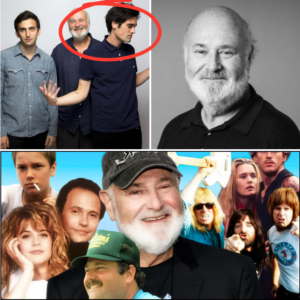In a development that has reignited global interest in one of the most enduring mysteries of modern times, the primary suspect in the 2007 disappearance of British toddler Madeleine McCann is set to be released from a German prison in September 2025. Christian Brueckner, a 48-year-old German national, has been named by authorities as the key figure in the case, yet no charges have been filed in connection with Madeleine’s disappearance, leaving the case as unresolved as ever. The announcement of Brueckner’s imminent release, confirmed by the Braunschweig Public Prosecutor’s Office on August 30, 2025, has stirred a mix of hope, frustration, and renewed scrutiny, as the world continues to grapple with the question: what happened to Madeleine McCann?
Madeleine, just three years old, vanished from her family’s holiday apartment in Praia da Luz, Portugal, on May 3, 2007, sparking a global media frenzy and an investigation that spanned multiple countries. Her parents, Kate and Gerry McCann, were dining at a nearby tapas restaurant with friends, checking on their sleeping children—Madeleine and her two-year-old twin siblings—every half hour. At around 10 p.m., Kate discovered Madeleine’s bed empty, the window open, and her daughter gone. The disappearance, described by The Daily Telegraph as “the most heavily reported missing-person case in modern history,” became a cultural touchstone, with Madeleine’s wide-eyed image plastered across newspapers, television screens, and missing-person posters worldwide.
The initial investigation, led by Portuguese police, was marred by missteps and controversy. Early suspicions fell on Kate and Gerry McCann, who were named arguidos (suspects) in September 2007 after forensic tests detected traces of Madeleine’s DNA in a rental car they used weeks after her disappearance. The couple faced intense media scrutiny, with Portuguese tabloids and some British outlets speculating wildly about their involvement, including baseless claims of a “pact of silence” among their dinner companions, known as the Tapas Seven. By July 2008, with no concrete evidence, the McCanns’ arguido status was lifted, and the case was shelved, leaving the family to pursue answers through private investigators.
Another early suspect, Robert Murat, a British-Portuguese property consultant living near the resort, was also cleared after extensive searches of his home and interviews with associates. Witnesses, including members of the Tapas Seven, reported seeing him near the McCanns’ apartment on the night of the disappearance, but Murat and his mother maintained he was at home. The lack of conclusive evidence and conflicting accounts left the investigation at a standstill until 2011, when the Metropolitan Police in London launched Operation Grange, a renewed effort to solve the case. In 2013, Scotland Yard released e-fit images of a man seen carrying a child toward the beach, reigniting hope, but no arrests followed.
The case took a dramatic turn in June 2020, when German authorities announced Brueckner as their prime suspect. A convicted sex offender with a history of burglary and assault, Brueckner had lived in the Algarve region between 1995 and 2007, often residing in a ramshackle dwelling near Praia da Luz. His criminal record, which includes a 1994 conviction for child sexual abuse and a 2019 sentence for raping a 72-year-old American woman in Portugal in 2005, painted a troubling profile. German prosecutor Hans Christian Wolters, leading the investigation, declared Brueckner “the only suspect” in Madeleine’s case, stating, “We have evidence which indicates he is responsible for the disappearance and death of Madeleine McCann.” Yet, Wolters admitted the evidence was insufficient for a conviction, citing the need for more concrete proof.
Key pieces of evidence against Brueckner include phone records placing him in Praia da Luz on the evening of May 3, 2007, with a call received near the Ocean Club resort around 8 p.m. A 2016 search of his former home uncovered disturbing materials, including writings describing the abduction of young children and a hard drive buried under his dead dog, which reportedly contained images suggesting Madeleine is deceased. A witness, Helge Busching, claimed Brueckner confessed at a 2008 festival that Madeleine “didn’t scream,” further fueling suspicions. Despite these leads, no definitive link has been established, and Brueckner has consistently denied involvement, refusing to comment on the case during a 2024 prison interview with German broadcaster RTL.
Brueckner’s upcoming release stems from the completion of his seven-year sentence for the 2005 rape, with an outstanding fine paid by an anonymous donor—reportedly a former German police employee—in June 2025. This payment moved his release date from January 2026 to September 17, 2025, prompting alarm among investigators. Wolters, speaking to the BBC, described Brueckner as “still dangerous” and expressed frustration at the legal constraints forcing his release. The Braunschweig prosecutor’s office has been unable to secure an arrest warrant for Madeleine’s case due to the lack of admissible evidence, despite ongoing searches, including a June 2025 operation in Portugal’s Atalaia region near Brueckner’s former residence, which yielded no breakthroughs.
The McCanns, now in their late 50s, have never wavered in their quest for answers. In a May 2025 statement marking the 18th anniversary of Madeleine’s disappearance, they expressed their “unwavering determination to leave no stone unturned.” Living in Rothley, Leicestershire, with their twins, now 20, they have channeled their grief into advocacy, supporting missing children’s initiatives and maintaining a website for Madeleine. Kate, a former GP, and Gerry, a cardiologist, have faced unimaginable pain, compounded by early accusations and media vilification. Their 2011 book, Madeleine, detailed their ordeal and renewed public sympathy, while their successful libel case against a Portuguese detective who claimed they faked the abduction underscored their commitment to protecting their daughter’s memory.
Public reaction to Brueckner’s release has been polarized. Supporters of the McCanns, who have rallied under hashtags like #FindMadeleine, fear that his freedom could hinder justice, especially given his plans to “go into hiding,” as stated in his RTL interview. Others argue that without charges, Brueckner’s detention would violate due process, pointing to his acquittal in October 2024 on unrelated sexual offense charges in Germany. Critics of the investigation highlight its cost—over £13 million for Operation Grange by 2020—and question why no one has been convicted after nearly two decades. Conspiracy theories, from human trafficking to cover-ups, continue to circulate on social media, though none have been substantiated.
The case’s enduring mystery lies in its unanswered questions. Was Madeleine abducted by a stranger, as Operation Grange concluded in 2017, possibly during a botched burglary? Praia da Luz saw a spike in break-ins in early 2007, with intruders entering through windows, a detail that aligns with the open window in the McCanns’ apartment. Or does the truth lie elsewhere, buried in the gaps of conflicting witness accounts and inconclusive forensics? The 2013 e-fit of a man carrying a child remains a haunting clue, yet no match has been confirmed.
For the McCanns, Brueckner’s release is a bitter reminder of the justice they seek. In a 2022 statement, they welcomed his naming as a suspect but emphasized, “Even though the possibility may be slim, we have not given up hope that Madeleine is still alive.” German authorities, however, operate on the assumption that she is deceased, a stance that contrasts with the UK’s missing-person framework. As Brueckner prepares to walk free, the McCanns and their supporters brace for another chapter in a saga that has defined their lives for 18 years.
The Madeleine McCann case remains a wound that refuses to heal, a puzzle with missing pieces that captivates and frustrates in equal measure. Brueckner’s release may close one chapter, but without charges or a confession, the truth about Madeleine’s fate remains elusive. The world watches, hoping that one day, the answers will come.


